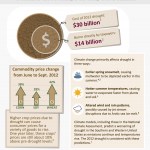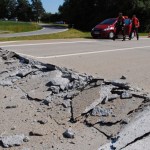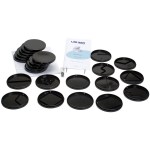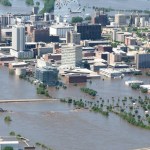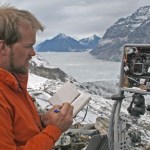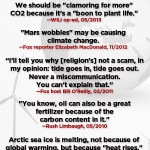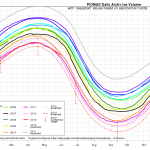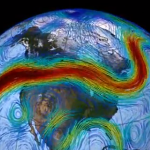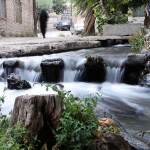Climate Change
On Tuesday, just after 1:30 PM Eastern Time, at Georgetown University, President Barack Obama will announce a vision for future steps to address and prepare for ongoing and future climate change. Below is a video teaser for the address, but first, this is what is likely to be in the plan:
New EPA rules on emissions from power plants
Increased use of public lands to develop renewable energy
New efficiency standards.
Climate disaster related preparedness.
He'll probably review recent administration actions as well.
Regarding the Keystone XL Pipeline, the president is not expected to say…
Here we have a nice new infographic for you to gaze at, share around on your facebook accounts, and so on. (It is below.) Here in Minnesota, we've got a problem getting that last one million acres of corn planted (about 1/8th of the normal amount), not because of drought, but because of excessive rain. However, all that extra rain is not expected to alleviate the effects of our drought long term, so we get to have both. If the price or availability of major food types ("commodities") goes south (up and down, respectively) here and there, adjustments can be made. But if climate change…
Two related things came across my desk this morning that should concern anyone who sees climate change as an important issue.
In Germany, the roads are buckling and breaking because of excessive heat, and there seems to be inadequate funding to re-engineer them. Here's a photograph from Spiegel Online of what happens when the rubber meets the road (where the rubber is global warming):
"Crack on the A93 at Abensberg: Here the pad burst through the intense heat, a motorcyclist built so a fatal accident." (google translated)
Meanwhile, over at The Guardian, John Abraham has a post describing…
A letter signed by (so far) 145 former Obama campaign staff calls on President Obama to reject the Keystone XL pipeline. There is no doubt that President Obama's action on climate change will be a large part of his legacy, and at this point, President Obama's position on Keystone XL is unclear. It is true that the Obama administration is doing some good things (like this) but building the Keystone Pipeline is one of the worst things he could allow to happen.
Frustrated with this situation, the people who helped put President Obama in the White House, twice, are speaking out. Here is the…
Let me 'splain.
If you want to know exactly where your dog is, you could put at GPS sensor in the middle of it's body, perhaps near the pancreas. It would give you an average position for your dog, and would be most accurate most of the time.
If you put the GPS sensor on the tip of the dog's tail, and used that to estimate where your dog is, you would be nearly wrong much of the time, even if over the long term this would be a good estimate for where your dog has been.
More importantly, if you wanted to measure the movement of your dog, the GPS sensor in the middle of the dog's body would…
Science is good at seeing things that you can’t really see. For example, science can provide an accurate three dimensional model of a critically important molecule even though no one has ever directly seen what this molecule looks like. That three dimensional model of the molecule can be used to understand things such as a) how life works and b) how to address some important disease.
Science can measure the exact proportions of each of several elements that are invisible that make up the air. We can sense the air but we can’t see Nitrogen vs. Oxygen vs. CO2 in the air, while Science can.…
... or Climate Noobs Bork Climate-science?
... or Can't News Be Correct?
(add your own below)
The thing is, CNBC, which is supposed to be a news station, is fueling public misunderstanding of climate science. This is bad journalism, and virtually criminal given the importance of climate change and the need for good science based policy related to climate change. We are long past the point where we can tolerate false balance, astro-turfing, and rating mongering. We need to have a good public understanding of climate science, we need it now, and we need "news" organizations like CNBC to stop…
NOTE: I've rewritten this post and redone the graphic. The original map on which I based the reconstruction, provided by the USGS, is distinctly different than the one the USGS provides today. The difference is, in fact, rather dramatic. In comparing the older and newer versions of the maps, I have decided to assume the later, more recent, version is more correct. I admit to being a little annoyed at the USGS providing a truly bogus map on their web site, but that is water under the bridge, as it were. So, the following post is edited a bit and a new graphic is provided. Thanks to…
High temperatures and dry conditions have caused the outbreak, increased intensity, and rapid spread of numerous wildfires in Colorado. Again. Fires happen, but the number, size, and intensity of wildfires in the western United States has been very high in recent years, and this is caused by global warming.
Global warming causes more rain and more frequent and more severe storm lines. More rain causes more plant growth in otherwise arid regions, and severe storms knock a lot of that vegetation down. This causes more light to get to the ground, so "ladder" vegetation, which enhances fire…
This is a long but excellent presentation of The Climate Desk, originally posted HERE where there is a blog post by Chris Mooney giving more details.
climatenexus on livestream.com. Broadcast Live Free
A recent post of mine on the topic is HERE.
This is what came across my desk this morning. A bit more activity than usual, but not by much. Enjoy. Or, rather, Be Afraid.
Congressman Demands Obama Apologize To Oklahoma For Investing In Climate Change Research
Just as extreme weather season kicks off, freshman Rep. Jim Bridenstine (R-OK) demanded that President Obama apologize to Oklahoma for allocating funding to climate change research. Bridenstine, a climate denier who serves on the House Science, Space, and Technology Committee, plans to introduce a bill that defunds climate change research.
Thousands more forced from home by…
Obviously, you don't want to help melt the ice cap. But you can help scientists figure out how and why it is happening and to learn important details of what might be one of the most important effects of global warming happening right now.
First, a word on why this is important. Look out the window. If you live in Bavaria, and you look out your window, perhaps you can see fish swimming by because you are in the middle of a huge flood affecting Central Europe. Look out the window. If you live in the American Midwest, it is either raining, about to rain, or it just rained, and you might be…
Weatherman Bob disappeared today. He was consumed, or maybe absorbed, by his Green Screen. A Green Screen is a screen, green in color, with special properties. A TV studio camera and the equipment it is hooked to replace the green screen with an imaginary background. So, a person who is not green can stand in front of the Green Screen and to the TV viewer it will look like the person is standing in front of something else. This is how weather reporters on TV ply their trade. They look like they are standing in front of a map of the region showing cold fronts and warm fronts and…
I have two items for you. First is a video produced by Media Matters on Right Wing Science. I especially love Bill Nye's facial expressions as he is assailed with unbelievable stupidity:
And now, also from Media Matters, this fun infographic. Share it around!
Since 2001 the amount of Arctic Sea ice that has melted during the summer has generally increased. There may have been a long term trend in melting of ice in the northern hemisphere generally, including mountain glaciers, the Greenland glaciers, and seasonally, Arctic Sea Ice. But the seasonal melting of Arctic Sea ice seems to represent a metastable shift unprecedented in available data. There is probably a tipping point followed by positive feedback. From 2001 onwards, the amount of sea ice melted each summer has gone up, and this has resulted in two related effects: 1) The total amount…
This is a guest post by David Kirtley. David originally posted this as a Google Doc, and I'm reproducing his work here with his permission. Just the other day I was speaking to a climate change skeptic who made mention of an old Time or Newsweek (he was not sure) article that talked about fears of a coming ice age. There were in fact a number of articles back in the 1970s that discussed the whole Ice Age problem, and I'm not sure what my friend was referring to. But here, David Kirtley places a recent meme that seems to be an attempt to diffuse concern about global warming because we…
I think most people will agree that in North America (and other places) we've been having some bad weather. Some of the weather is not necessarily intrinsically bad ... so what if it is a little cooler or a little warmer than you expect. Aridity? Deserts are nice! Extra rainfall? Great for the plants. But actually that sort of thing has its down side since important systems like agriculture, the water supply, and Spring Break work reasonably well because of expectations that might not be met if the weather is different.
Other weather is intrinsically bad. I'd mention tornadoes but at the…
A friend of mine, Gareth Renowden, wrote a novel called The Aviator (The Burning World). It is a post-climate change story, set in the future, and it is a good one. I highly recommend it. Gareth is also an activist who puts considerable effort into climate change. Some time in the last few hours, the Facebook page Gareth had created to promote his novel was taken down by Facebook. From Gareth's blog post on the matter:
Yesterday The Aviator‘s Facebook page disappeared. When I logged in to check the page I was greeted by a message that said the page was being removed because it had been…
There are bacteria that use Iron (and other elements) to make tiny magnets that they carry around so they don't get lost. (I anthropomorphize slightly.) There are isotopes of Iron that are not of the Earth, but are found only elsewhere in the universe.
Suppose an event happened elsewhere and spewed some of that cosmic Iron isotope, say Fe-60, onto the earth, and the bacteria who were busy making their tiny compasses at that time used some of it. Then the bacteria died and were trapped inlayers in seafloor sediment and later examined by scientists looking for ... well, looking for…
A quaint New England rocky creek
Imagine standing next to Parable Creek, an imaginary rocky brook in New England. The water is rushing past you from left to right, around the rocks that emerge tall above the surface of the stream, mounding over the top of those that are lower down. The deepest parts of the steam are relatively flat but show ripples that belie the presence of other rocks and sunken branches that are well below the water line.
While you are observing a young boy of about 11 years old comes along, carrying his fishing pole. “Hey mister, how’s it going?” he says, as he steps…
